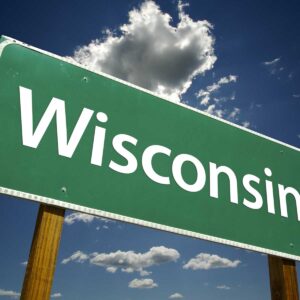 The Wisconsin Department of Revenue (WDR) released guidance on January 15, 2021 on how PPP loan expenses will be treated for Wisconsin tax purposes. Congress recently enacted the “Consolidated Appropriations Act, 2021” (“CAA”) to allow PPP loan expenses to be deductible retroactively to the passage of the CARES Act on March 27, 2020 (as well as prospectively). Thus, a federal deduction will be permitted for PPP loan expenses in 2020 and after. Wisconsin, however, has not adopted any provisions in the CAA bill and, therefore, is looking at the federal law in place prior to the CAA.
The Wisconsin Department of Revenue (WDR) released guidance on January 15, 2021 on how PPP loan expenses will be treated for Wisconsin tax purposes. Congress recently enacted the “Consolidated Appropriations Act, 2021” (“CAA”) to allow PPP loan expenses to be deductible retroactively to the passage of the CARES Act on March 27, 2020 (as well as prospectively). Thus, a federal deduction will be permitted for PPP loan expenses in 2020 and after. Wisconsin, however, has not adopted any provisions in the CAA bill and, therefore, is looking at the federal law in place prior to the CAA.
The previous law under CARES followed the guidance spelled out by the IRS in Rev Rul 2020-27 and IRS Notice 2020-32 that disallowed the deduction for these expenses and did so as these expenses were incurred. As a result, Wisconsin will not permit the deduction for PPP loan related expenses, and these expenses will not be deductible as they were incurred in 2020 (following the timing of Rev Rul 2020-27). Below is the excerpt from this WDR guidance that was released on January 15, 2021:
(From WDR Information Published on January 15, 2021)
Paycheck Protection Program Expenses –
The Act provides that expenses paid with forgivable Paycheck Protection Program (PPP) loan proceeds are deductible for federal tax purposes (see secs. 276(a) and 278(a) of Division N of Public Law 116-260). However, Wisconsin law follows federal law prior to amendments made by the Act. Therefore, expenses incurred that are paid with the forgivable PPP funds are not deductible for Wisconsin income/franchise tax purposes. Wisconsin follows the interpretation of federal law prior to modification by the Act, which is described in Revenue Ruling 2020-27:
“A taxpayer that received a covered loan guaranteed under the PPP and paid or incurred certain otherwise deductible expenses listed in section 1106(b) of the CARES Act may not deduct those expenses in the taxable year in which the expenses were paid or incurred if, at the end of such taxable year, the taxpayer reasonably expects to receive forgiveness of the covered loan on the basis of the expenses it paid or accrued during the covered period, even if the taxpayer has not submitted an application for forgiveness of the covered loan by the end of such taxable year.”
Note: Although Revenue Ruling 2020-27 was made obsolete as a result of the Act, it still interprets federal law prior to the Act.
Again, the above is the WDR’s position on the tax treatment of PPP expenses following the recent federal CAA law change. It is unclear, however, what the Wisconsin legislature may do with this issue and whether it will offer legislation that would permit a Wisconsin tax deduction to follow the federal treatment. Please contact your Sikich advisor with any PPP questions or for assistance.
About our authors

Jim Brandenburg
Jim Brandenburg, CPA, has extensive experience and knowledge in corporate and partnership tax law, mergers and acquisitions and tax legislation. His expertise includes working with owners of closely held businesses to identify tax planning opportunities and assist them in implementing these strategies.

Brian Kelley
Brian Kelley, CPA, MST, is a managing director of State & Local Tax Services. He assists clients in areas such as multi-state income, sales and use, payroll, unclaimed property, and personal property tax services, multi-state nexus and exposure studies, audit defense and appeals and more.





